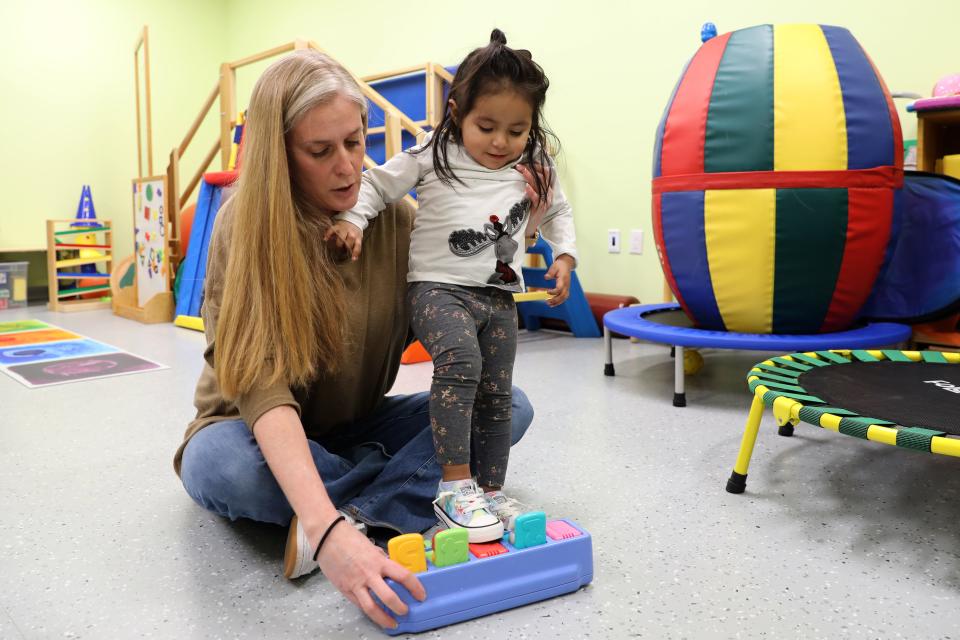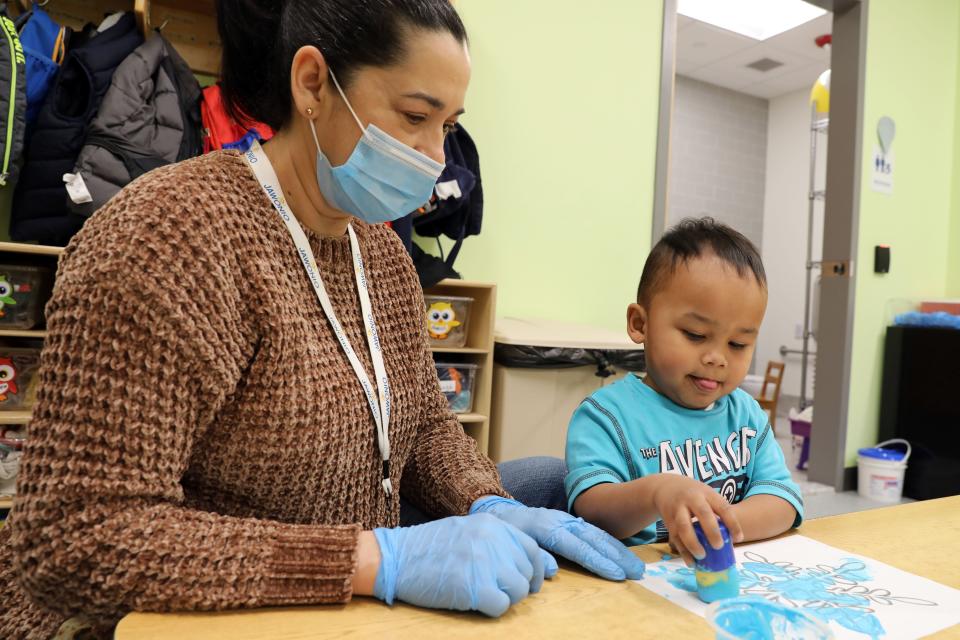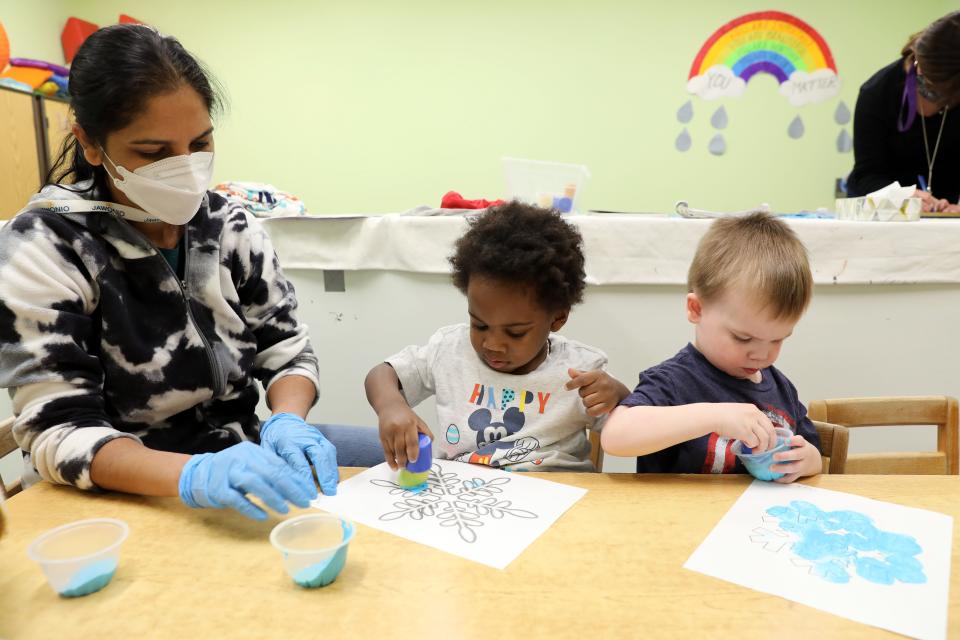Comptroller: Early intervention delays hurt kids; state Health Dep't told to fix inequities for Black children
Too often, children who are referred for early intervention services face delays in getting the therapies they need, may not get all the services recommended, and sometimes don’t get any at all, according to an audit by the state Comptroller’s Office.
And according to the audit and the state Health Department's own report, equity in access to services lags. White children usually referred to the program at a younger age than Black or Hispanic children. Black children are also less likely than white children to receive therapeutic services on time.
“Failure to provide babies and toddlers with early intervention services misses a critical window of opportunity and increases the risk of significant developmental and learning delays, and the need for more special education services in the future,” state Comptroller Thomas DiNapoli said. “The Department of Health needs to address the underlying reasons why children are not receiving the services they are entitled to, why services are often delayed and how access can be improved.”

Some families don't OK services for their children, potentially leaving babies and toddlers even more vulnerable to developmental delays. But the state Department of Health, which runs early intervention, doesn't document why parents said no or didn't follow through when offered services, the audit found.
An outdated list of providers managed by the state DOH can also make it difficult for parents to find the therapies their kid may need.
Problems were only exacerbated during the COVID pandemic, the audit found. Referrals for therapies were delayed and some families lacked the ability to connect to telehealth and virtual therapy sessions.
What is early intervention?
The Early Intervention Program provides services for babies and children up to age 3 who have, or are at risk for, a physical or developmental disability. The state Health Department partners with counties, which administer programs at the local level.
Children can be referred for an evaluation by a daycare provider or doctor or by a parent. The goal is to get needed support to children as soon as possible, including therapies or assistive devices.

"The earlier a child gets services, the better able we are to mitigate some of the delays that they have," said Randi Rios-Castro, CEO of Jawonio, which provides early intervention services at its New City center and in kids' homes. "A year is a long time in a child's development. If that is delayed, then those gains that we could have made may never be caught up on."
Delayed services
The comptroller's audit looked at early intervention program data from July 2018 through February 2022.
With about 189,000 children referred to the program, some 27,000, or 14%, never received a full, multidisciplinary evaluation. For some 10,000 children, or 5%, those evaluations were still pending, according to the audit.
On heels of SNAP cuts: Why food pantries in NY are bracing for bigger lines when new state budget kicks in
Coyotes: Why confrontations are up in Hudson Valley, and what to do if you're approached
That harbor seal in the Hudson River? It appears healthy. (And, yes, it is adorable)
More than a quarter of children failed to start services within 30 days, which is the goal of the program.
Among kids who received individualized family service plans, which outline all the kinds of therapies and services they need, only about half received all the therapies they were supposed to get.
Black children lagged in every measure when it came to receiving timely services. Even though DOH in its own report recognized these inequities, the comptroller's audit said, the department had not yet developed an action plan to address these disparities.
Hurdles to finding kids, and finding providers
DOH manages a list of providers, but its county partners told auditors that the provider list often was out-of-date with inaccurate information. The comptroller's audit found that about 23% of the 7,800 service providers in the DOH's state directory hadn't provided any services during the period the audit took place.
Some counties keep their own provider database, auditors reported, since changes they recommend don't make their way to the state's list.
Making matters worse is that even those agencies that offer services can struggle to have enough staff to meet demand. State reimbursement rates remain low, so physician therapists and aides can often make more working at a school district or taking private clients, Rios-Castro said. At Jawonio, the early intervention waiting list as of March 2 had 31 kids on it.

The state relies on counties to raise awareness of early intervention offerings. But programs differ from county to county because the state's guidance is vague, the audit found. More kids get these important services in counties that have more extensive outreach plans.
A lot of children's deficits could be more easily tracked and addressed with better technology, the audit found. The comptroller's audit recommends a web-based management system be implemented asap.
How many parents say no and why?
Kids often don't get services because parents fail to give consent. But DOH doesn't consistently keep data on the reasons parents decline to participate.
County officials told auditors that parental consent often has nothing to do with a parent not wanting a kid to have supports. Counties have trouble reaching parents. A parent may not be able to get to evaluation meetings or get the kid to services. Or a parent may struggle to arrange appropriate therapies.
Auditors said DOH should find out why parents are not approving services, so they can fix such problems.

In the Health Department's response to the audit, officials said that the department updated its parent consent system, aiming to reduce barriers to getting approval from parents and guardians, including e-sign capabilities.
But, the DOH response stated, "Early Intervention is a voluntary program. Parents have the right to elect or decline to enroll their child in the Program and have the right to close out the referral at any time."
Tina Kim, deputy comptroller for state government accountability, said data about parents' choices to opt out or halt services would be valuable to help get more children the services they need. "You can’t solve a problem if you can’t get to the root of what the problem is."
Nancy Cutler writes about People & Policy. Follow her on Twitter at @nancyrockland.
This article originally appeared on Rockland/Westchester Journal News: Babies needing early intervention often face delays NY audit says

